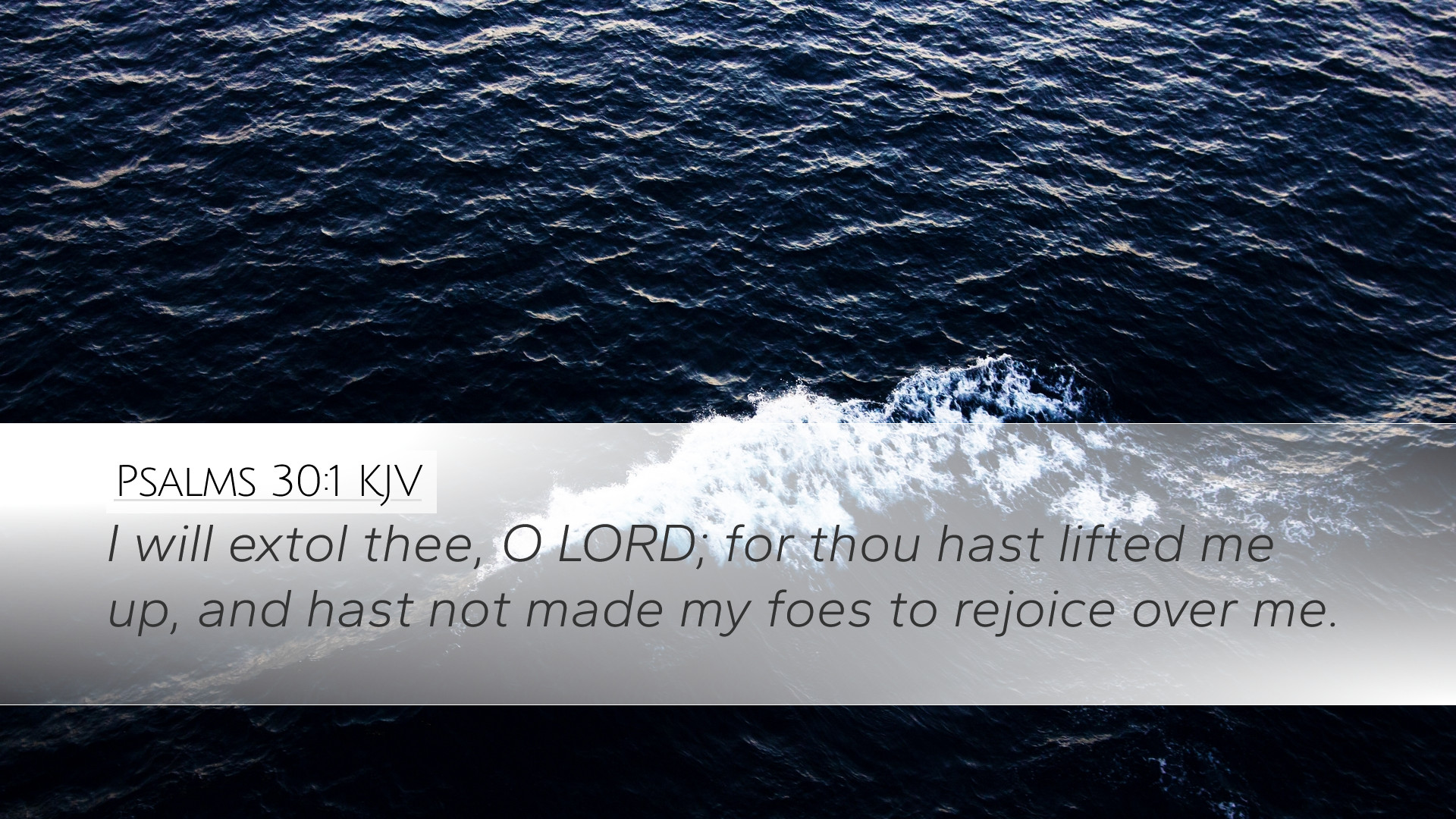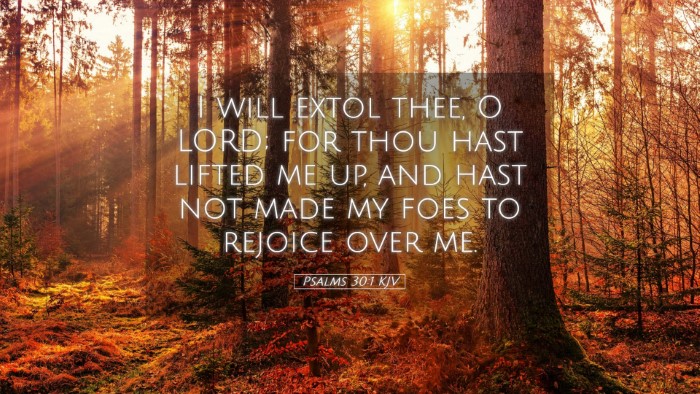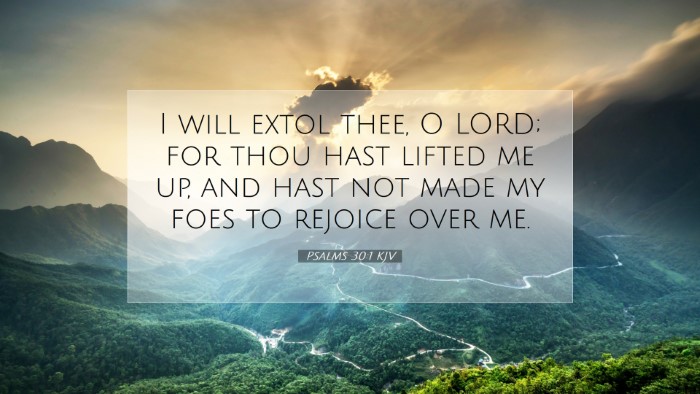Commentary on Psalms 30:1
Verse Context: "I will extol thee, O Lord; for thou hast lifted me up, and hast not made my foes to rejoice over me." (Psalm 30:1, KJV)
Overview
The thirty-first Psalm is a rich tapestry of thanksgiving and praise, reflecting the deep emotional and spiritual journey of the psalmist. In verse 1, the psalmist expresses a profound sense of gratitude and relief, an acknowledgment of divine intervention during a time of distress.
Insights from Matthew Henry
Matthew Henry highlights that this psalm likely emerges from a period of great suffering or danger, possibly linked to King David's personal experiences. He notes that the phrase "I will extol thee" signifies a deliberate and vigorous act of praise. Henry emphasizes that this declaration is not merely a spontaneous reaction but rather an intentional decision to remember God's deliverance.
He continues by pointing out that "thou hast lifted me up" suggests a restoration from a low state, perhaps physically, emotionally, or spiritually. Henry's commentary reflects on the duality of human experience; the psalmist recognizes the temporality of despair contrasted with the permanence of divine favor and support. Furthermore, he remarks on the weight of the assurance provided to believers that God will not allow their enemies to triumph over them.
Insights from Albert Barnes
Albert Barnes expands on the theme of extolling God as an act of worship that arises from personal experience of divine mercy. He writes that the psalmist is not only declaring joy but an acknowledgment of God's character and works. Barnes insists that the lifting up signifies a spiritual elevation alongside any physical restoration.
Moreover, Barnes points out the importance of recognizing God's hand in times of trouble. He suggests that the phrase "hast not made my foes to rejoice over me" conveys a deep assurance in God's protection. The psalmist takes comfort knowing that the apparent triumph of adversaries will ultimately be thwarted by divine intervention, underscoring a central theme in many psalms: the vindication of the righteous.
Insights from Adam Clarke
Adam Clarke offers a detailed analysis of the grammatical structures of the text, enhancing the understanding of the weight behind the psalmist's words. He elaborates on the term "extol," indicating that it denotes not only praise but also a triumphant declaration in the face of adversities. This act of extolling God serves as a means of public testimony to His faithfulness.
Clarke remarks on the historical implications of the text, considering the likelihood of David's authorship and its link to past experiences where God had delivered him from death and despair. Clarke notes the importance of reflecting on God’s historical acts of deliverance in order to bolster faith during trying times. He concludes that the affirmation "I will extol thee" should serve as a model for believers in their expressions of gratitude.
Thematic Reflections
- Thanksgiving: The act of extolling God introduces a pattern of thanking God for His past interventions. This theme resonates across the Scriptures as a vital practice for believers.
- Divine Protection: The assurance against enemies is a recurring motif in Psalms. God's protective nature reinforces the belief that faith provides security amidst life's adversities.
- Spiritual Revival: The notion of being lifted up signifies more than just physical well-being; it indicates spiritual renewal, emphasizing the holistic nature of God’s provision.
Practical Applications
For pastors, this verse serves as a reminder to integrate themes of trust in God's deliverance and the importance of thankfulness in the life of the community. Congregational worship should reflect this acknowledgment of God’s goodness and protective nature.
Students and scholars can use this psalm to explore the balance between human emotion and divine sovereignty. It invites a deeper inquiry into how personal experiences of God’s faithfulness inform theological education and pastoral practice.
For theologians, Psalms 30:1 invites reflection on the nature of suffering and redemption. It challenges the notion of divine silence amidst pain, pointing instead to the active role that God plays in the lives of His people.
Conclusion
Psalms 30:1 encapsulates the essence of gratitude that arises from genuine reflection on God’s character and actions. The combined insights from public domain commentaries provide a holistic understanding of the verse, reminding us of the importance of praise in light of divine intervention, the protection of God, and the intimate relationship nurtured through thanksgiving. As we contemplate these themes, we are encouraged to extol God for His everlasting mercy and presence in our lives.


